Autres mots-clés :
guerre
-

Transformer le corps masculin : armes, armures et objets personnels gravés dans l’Europe moderne
Avant le 29 mai - Paris
Cette journée d’étude est organisée dans le cadre du projet "Les Objets de la littérature baroque" (c. 1550 – 1660), soutenu par l’Université Sorbonne Nouvelle – Paris 3 et porté par l’équipe Epistémè. Elle succèdera à une première journée d’étude portant sur la parure et l’ornement, qui aura lieu à l’Université de Reims en septembre 2015.
lire la suite
-
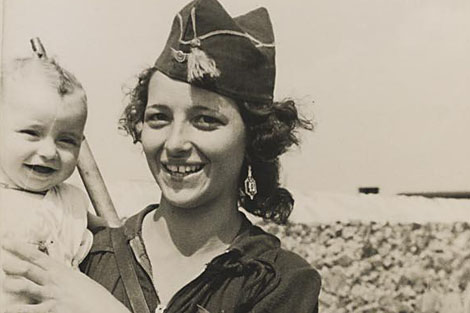
Colloque international
Genre et Post-Conflit : Comment promouvoir le rôle des femmes dans la reconstruction post-conflit
22 juin - Paris Unesco
Malgré les activités importantes des femmes dans la construction de la paix, elles se trouvent trop souvent éloignées des structures formelles de prise de décision dans les périodes de post-conflit.
lire la suite
-
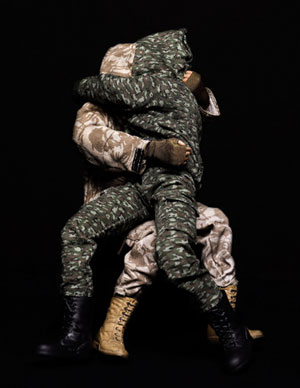
Love, Sex and War : Towards another History of 20th Century Europe
Avant le 30 novembre - Paris
This workshop will launch a two-‐year research project focusing on the history of love, sex, and war in Europe. Historian Dagmar Herzog has called the 20th century “the century of sex,” while Laura Lee Downs and Kathleen Canning consider it a time when “gender troubles” emerged. Yet, the 20th century also initiated greater equality between the sexes and increasing liberalization of sexual norms and rights. Both categories – gender and sexuality – profoundly shaped the last century. Two world wars, genocide, and other episodes of mass violence make it crucial to examine European societies from a social and cultural perspective and to ask : what role did gender and sexuality play in these events ?
lire la suite
-

Barkahoum Ferhati, "Guerre et genre. Femmes chrétiennes et femmes musulmanes pendant la guerre d’Algérie"
4 décembre - Paris
B. Ferhati, historienne et anthropologue, directrice de recherche au CNRPAH (Centre national de recherches préhistoriques, anthropologiques et historiques, Alger), a mené plusieurs recherches sur les questions liées à la sexualité des femmes dans le monde arabe (prostitution, excision) et au célibat féminin dans la société algérienne (en particulier).
lire la suite
-
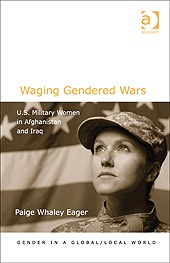
P. Whaley Eager, Waging Gendered Wars. U.S. Military Women in Afghanistan and Iraq
Waging Gendered Wars examines, through the analytical lens of feminist international relations theory, how U.S. military women have impacted and been affected by the wars in Iraq and Afghanistan. Although women were barred from serving formally in ground combat positions within the U.S. armed forces during both wars, U.S. female soldiers are being killed in action.
lire la suite
-
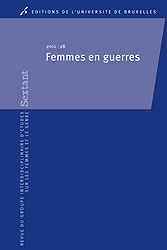
Livre
Milquet Sophie et Frédéric Madeleine (coord.), Femmes en guerres
La guerre est habituellement considérée comme une affaire d’hommes, où les femmes n’occuperaient que des roles secondaires. Bien qu’actrices et témoins de l’histoire, elles voient en permanence leur expérience dévalorisée.
lire la suite
-
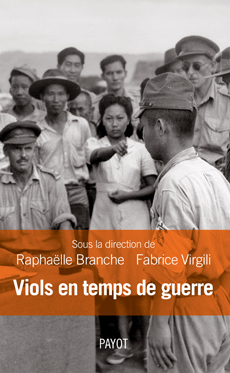
Livre
Raphaëlle Branche et Fabrice Virgili, Viols en temps de guerre
Ce livre pionnier éclaire la place et le sens des viols en temps de guerre. Parce que les victimes étaient majoritairement des civils et des femmes, les viols furent longtemps relégués au second plan, à la marge du champ de bataille.
lire la suite
-

Corps en guerre : une reconfiguration de la virilité ? Une perspective historique
12 novembre - Lausanne
Les guerres du XXe siècle, avec leur massification de la violence allant jusqu’à la cruauté, ont mis à l’épreuve les rapports de genre, en particulier les images de l’homme. Cette journée d’étude cherche à analyser les modalités de la reconfiguration des modèles virils, en se concentrant sur la problématique des corps en guerre, notamment des corps blessés, particulièrement durant la Seconde Guerre mondiale, mais également durant la Guerre d’Algérie.
lire la suite
-

Sandrine Ricci, Avant de tuer les femmes, vous devez les violer ! Rwanda : rapports de sexe et génocide des Tutsi
« Avec cet ouvrage, Sandrine Ricci a entrepris une grande première en langue française : étudier le génocide – ici le génocide des Tutsi en 1994 – dans une perspective féministe. Mais étudier ce génocide de ce point de vue, c’est remettre en cause les présupposés qui informent toutes les études sur les génocides, et le génocide en général ; et qui informent aussi les présupposés sur les violences contre les femmes commises dans toutes les guerres. Car oui, la guerre est « genrée », comme la paix. ».
lire la suite
-

Carol Mann, La Résistance des femmes de Sarajevo
Comment survit-on durant la guerre ? Comment vit-on la guerre, occidentale et contemporaine ?
Durant la guerre, à Sarajevo comme ailleurs, les femmes et tous ceux qui ne sont pas au combat (enfants, vieux et malades) maintiennent la vie, la protègent, lui donnent sens. Cette résistance de chaque instant, pour continuer à en faire exister un quotidien, se fait aussi avec l’aide du travail humanitaire.
lire la suite
Fichiers de syndication :
Statistiques :
Le site contient 4383 articles
